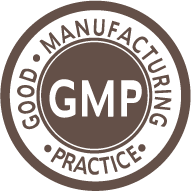Harnessing the Power of Astaxanthin: Advantages for Pre and Post-Surgical Recovery, Including Neck and Knee Pain Relief
.webp)
In the pursuit of optimal health and well-being, researchers and healthcare professionals continually explore natural compounds that offer promising benefits for various aspects of human health. One such compound gaining attention is astaxanthin, a potent antioxidant found in certain seafood and algae. In this blog, we'll delve into the advantages of astaxanthin and its potential effects on both pre and post-surgical recovery, shedding light on its remarkable properties and applications, including neck strain relief and knee pain relief.
Understanding Astaxanthin: Nature's Powerhouse Antioxidant
Astaxanthin belongs to the carotenoid family of antioxidants and is responsible for the vibrant red-orange hue observed in marine creatures like shrimp, lobster, and salmon. Its exceptional antioxidant potency surpasses that of well-known antioxidants like vitamin C, vitamin E, and beta-carotene, making it a valuable ally in combating oxidative stress and inflammation in the body.
Advantages of Astaxanthin for Pre-Surgical Preparation
1. Reduced Inflammation: Astaxanthin exhibits robust anti-inflammatory properties, which can help mitigate pre-existing inflammation and prepare the body for surgery. By addressing inflammatory markers, astaxanthin may contribute to a smoother surgical experience and facilitate post-operative recovery, easing neck pain and provide some pain reliever for knee.
2. Enhanced Immune Function: Maintaining a healthy immune system is crucial before undergoing surgery to reduce the risk of complications and infections. Astaxanthin's immune-modulating effects bolster immune function, providing a protective shield against pathogens and supporting the body's defense mechanisms during the perioperative period.
3. Antioxidant Protection: Surgery-induced oxidative stress can damage cells and tissues, prolonging recovery time and increasing the risk of complications. Astaxanthin's potent antioxidant activity scavenges free radicals and protects cells from oxidative damage, promoting cellular integrity and resilience in the face of surgical stressors.
Potential Effects of Astaxanthin on Post-Surgical Recovery, Neck, and Knee Pain Relief
1. Pain Management: Post-surgical pain, treating neck strain, and knee pain are common concerns for patients undergoing various procedures. Astaxanthin's analgesic properties may help to alleviate neck pain by modulating inflammatory pathways and reducing pain perception, offering a natural alternative to conventional pain medications.
2. Faster Wound Healing: Astaxanthin's ability to enhance tissue regeneration and repair can accelerate wound healing following surgery. By promoting collagen synthesis and supporting angiogenesis (the formation of new blood vessels), astaxanthin facilitates the restoration of damaged tissues, leading to faster recovery and improved surgical outcomes, including to relieve stiff neck and knee pain.
3. Reduced Swelling and Inflammation: Excessive inflammation and swelling are typical responses to surgery and conditions such as osteoarthritis, contributing to discomfort and hindering mobility. Astaxanthin's anti-inflammatory effects can help attenuate post-operative inflammation, minimizing swelling and promoting a more comfortable recovery process, including neck strain relief and knee pain relief.
4. Protective Effects on Organs: Surgical procedures and conditions like osteoarthritis can place stress on vital organs, including the heart, liver, and kidneys. Astaxanthin's organ-protective properties shield these organs from ischemic injury and oxidative damage, safeguarding their function and promoting overall recovery and well-being to alleviate neck pain and knee pain.
Incorporating Astaxanthin into Pre and Post-Surgical Care
Integrating astaxanthin into pre and post-surgical care protocols offers a natural and effective means of supporting optimal recovery and minimizing the risk of complications, including relief from neck and knee pain. Here are some considerations for incorporating astaxanthin into surgical preparation and recovery:
Consultation with Healthcare Provider: Before starting any new supplement regimen, consult with your healthcare provider, especially if you have underlying health conditions or are taking medications that may interact with astaxanthin.
Quality Matters: Choose high-quality astaxanthin supplements from reputable sources to ensure purity, potency, and safety.
Dosage and Timing: Follow the recommended dosage guidelines provided by your healthcare provider or the supplement manufacturer. Start taking astaxanthin several weeks before surgery to maximize its pre-operative benefits, and continue its use during the post-operative period for ongoing support.
In conclusion, astaxanthin stands out as a powerhouse antioxidant with numerous advantages for both pre and post-surgical recovery, providing neck strain relief and knee pain relief and promoting overall well-being. By harnessing its anti-inflammatory, antioxidant, and tissue-protective properties, individuals can optimize their surgical outcomes and expedite the recovery process, paving the way for a smoother and more comfortable healing journey. As always, consult with your healthcare provider to determine the most appropriate approach to incorporating astaxanthin into your pre and post-operative care plan.





